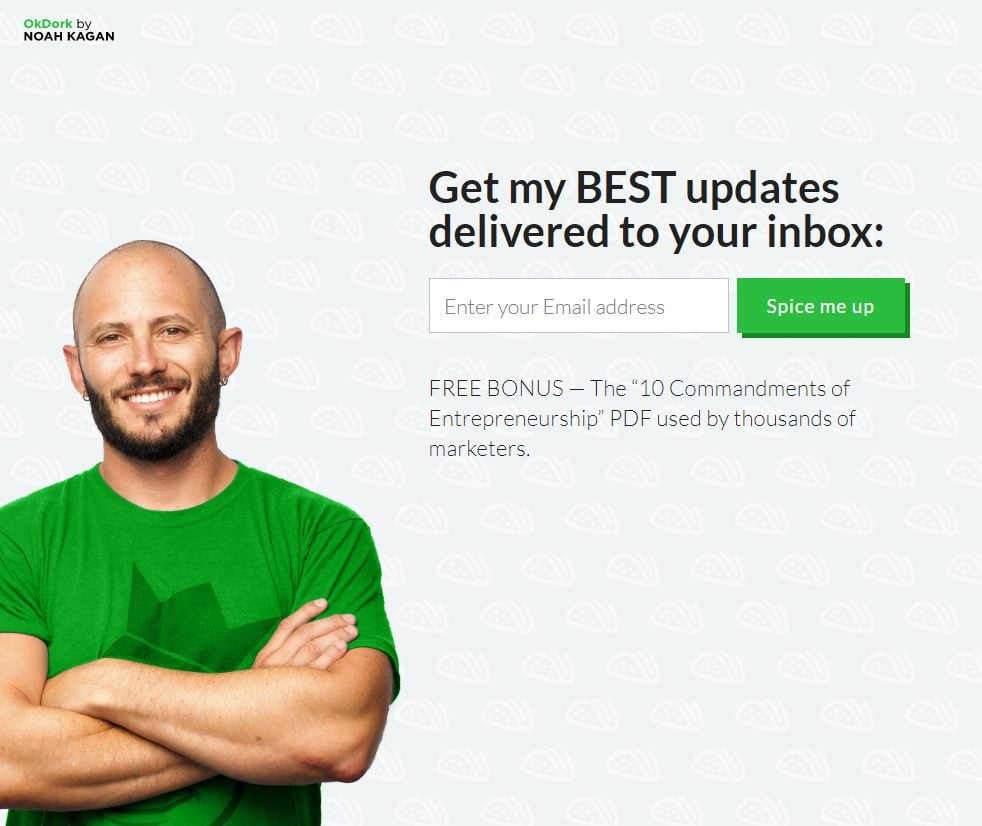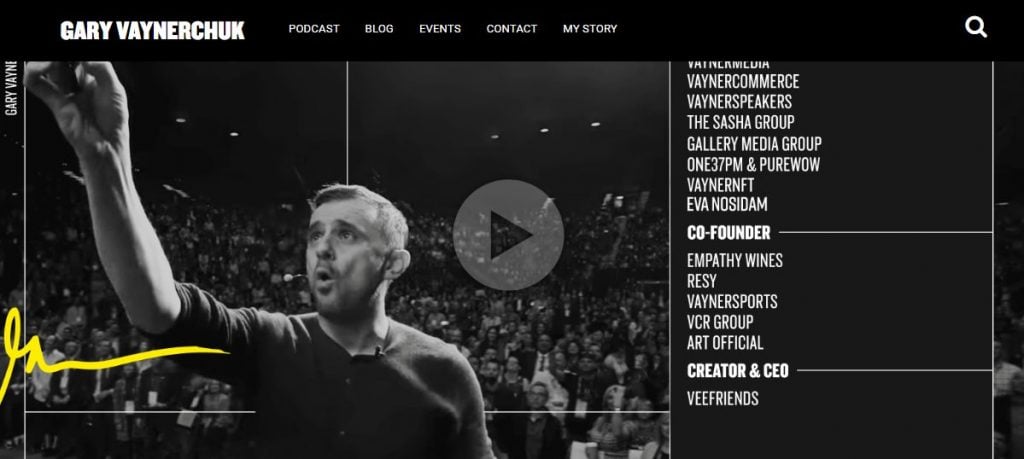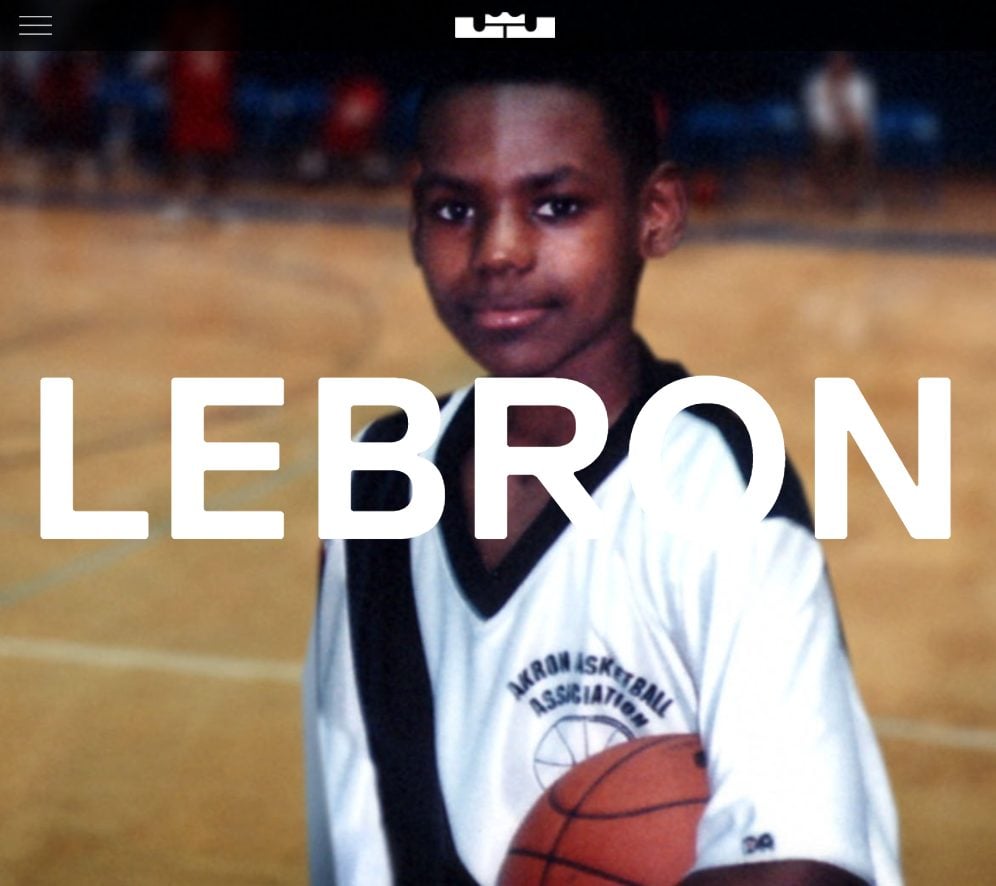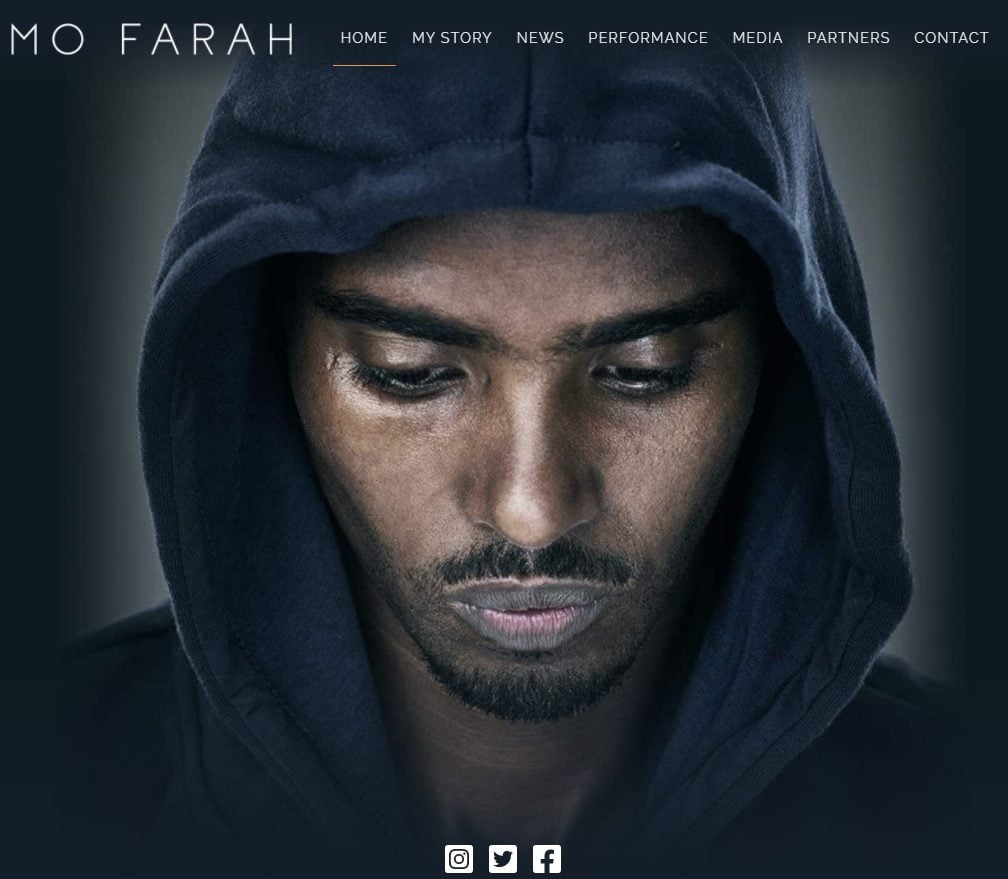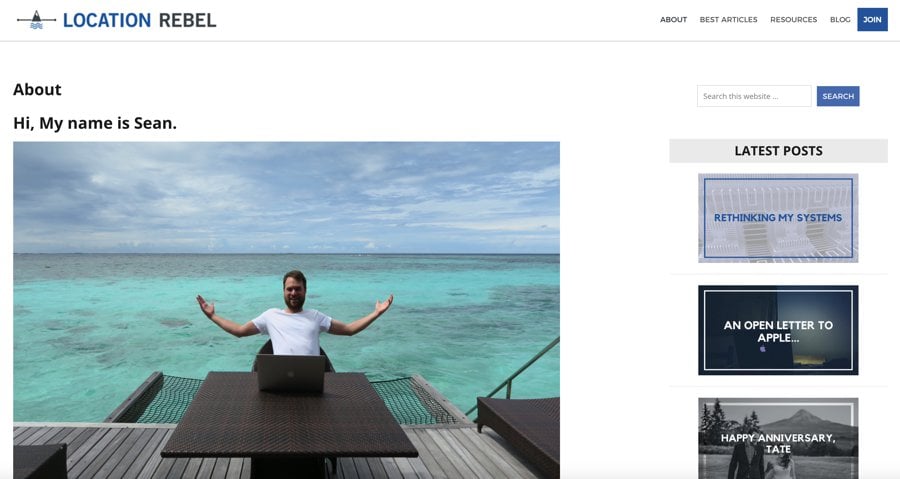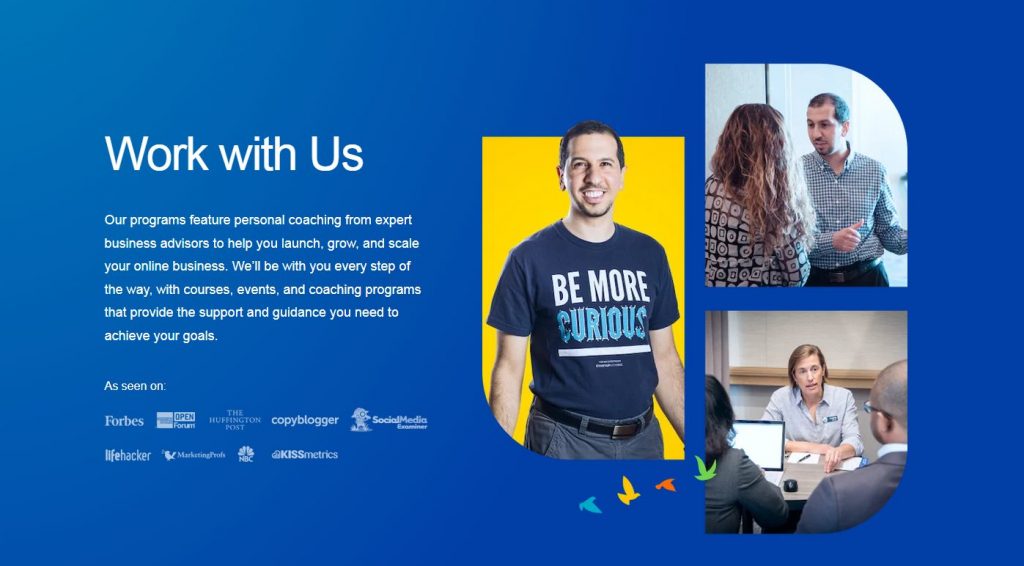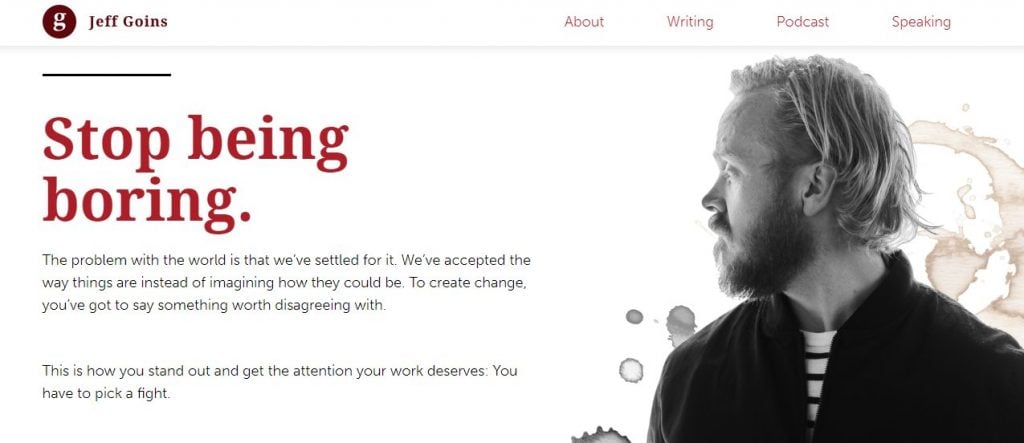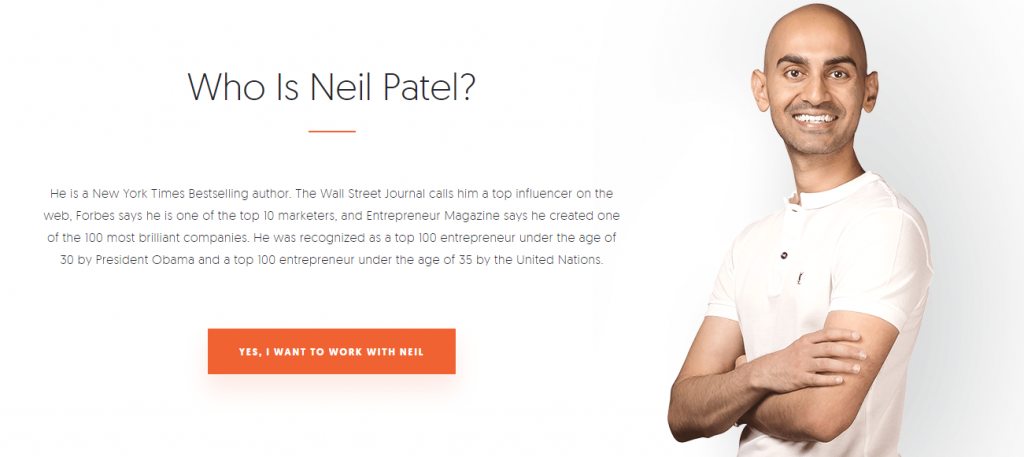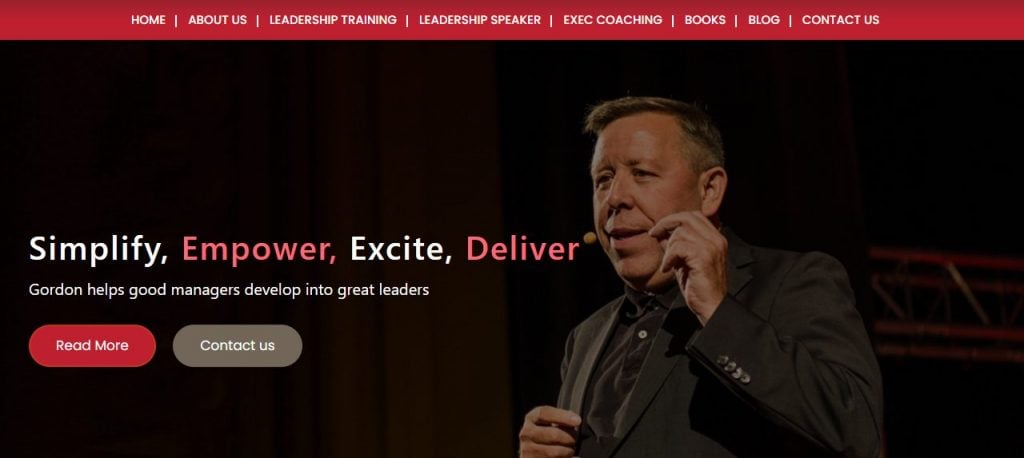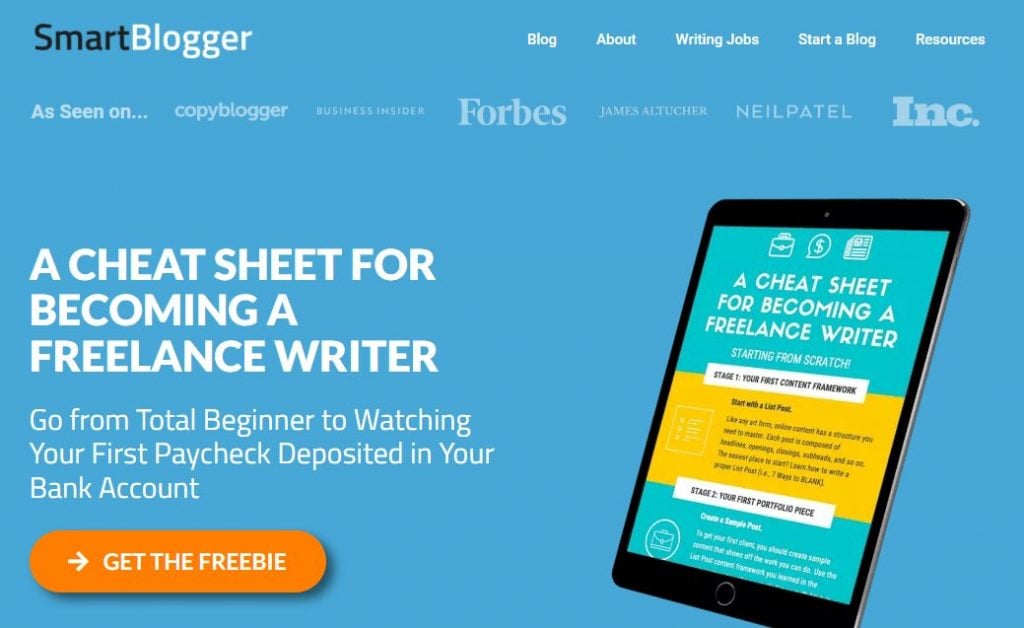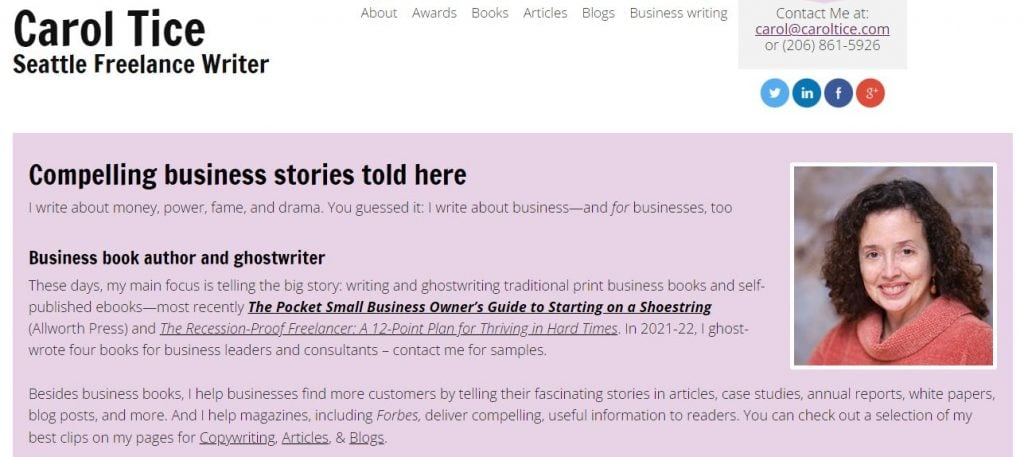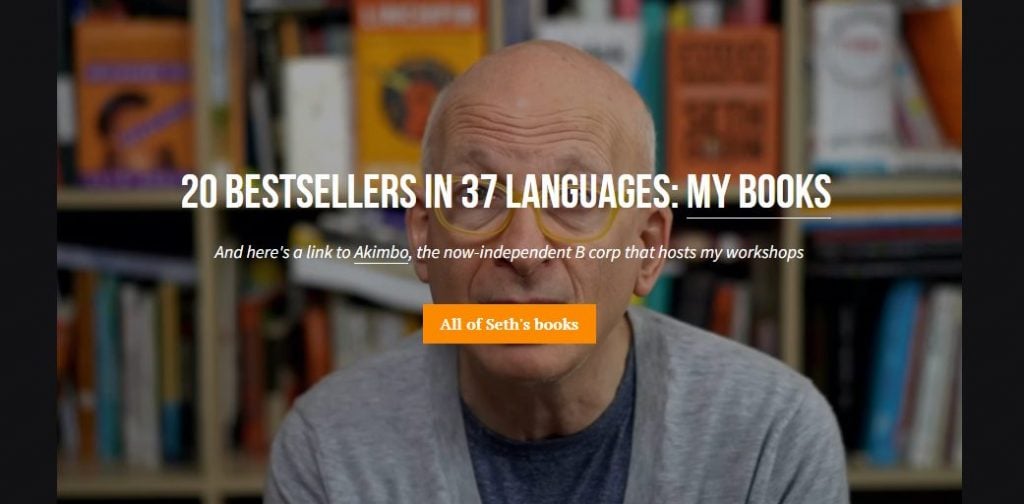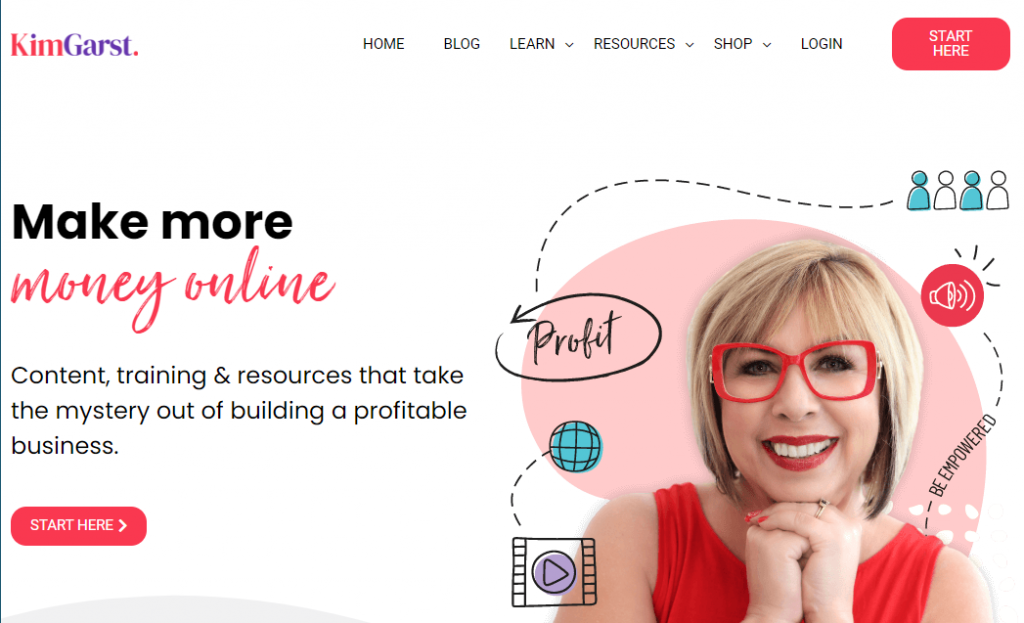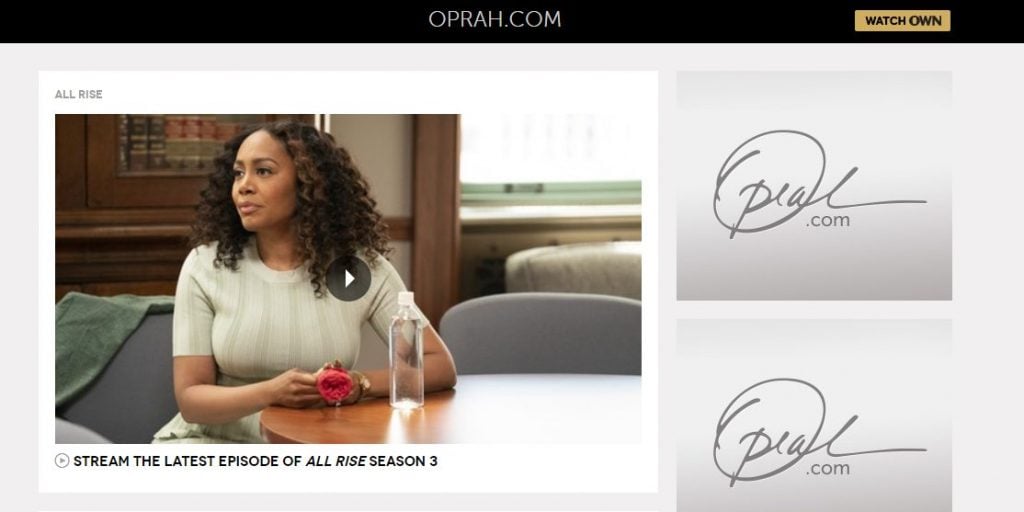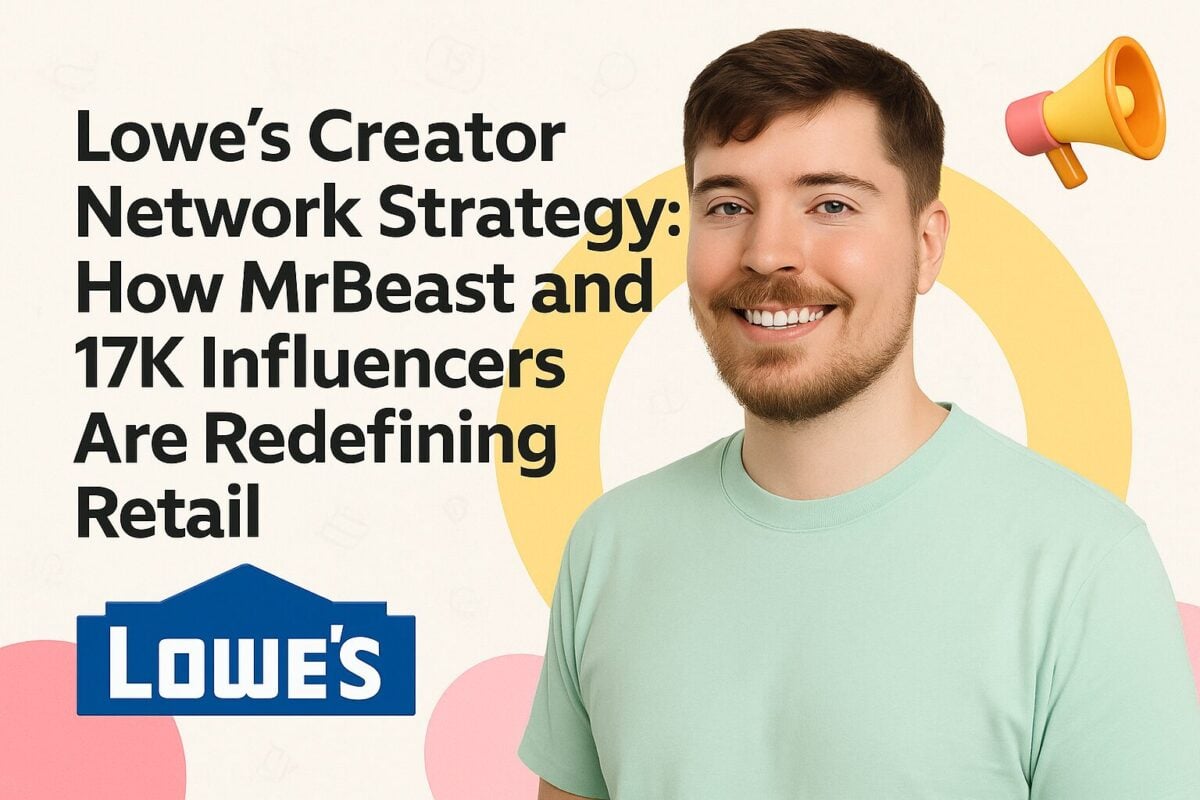Personal branding has emerged as a critical element for professional success. It's no longer just about having a presence; it's about creating an impact. For seasoned marketers, business leaders, and development managers, a robust personal brand can open doors to new opportunities and cement one's position as an industry leader.
This article highlights 17 exceptional personal branding examples that exemplify the power of a well-crafted personal identity. By exploring these standout cases, you'll gain valuable insights into the strategies and nuances that make a personal brand resonate. From innovative content creation to authentic engagement, these examples will inspire you to enhance your personal brand and achieve your professional aspirations.
- What Is Personal Branding?
- 1. Noah Kagan
- 2. Gary Vaynerchuk
- 3. LeBron James
- 4. Leonardo DiCaprio
- 5. Mo Farah
- 6. Sean Ogle
- 7. Danny Iny
- 8. Jeff Goins
- 9. Neil Patel
- 10. Gordon Tredgold
- 11. Jon Morrow
- 12. Mark Manson
- 13. Carol Tice
- 14. Seth Godin
- 15. Lolly Daskal
- 16. Kim Garst
- 17. Oprah Winfrey
- Personal Branding Statement Examples
- Conclusion
- Frequently Asked Questions
What Is Personal Branding?
Personal branding is the process of creating a unique identity that distinguishes an individual in the marketplace. It's about defining and promoting what you stand for, your values, skills, and passions, to build a reputation that resonates with your target audience. Unlike traditional branding, which focuses on businesses or products, personal branding centers on individuals, highlighting their unique qualities and expertise.
At its core, personal branding involves a strategic combination of self-promotion, networking, and authentic engagement. For example, Noah Kagan has built a strong personal brand by offering actionable business advice through his podcast, YouTube channel, and blog. His background with companies like Facebook, Mint, and Intel adds credibility, making his brand a trusted resource for aspiring entrepreneurs.
Gary Vaynerchuk, another exemplary personal brand, leverages his journey from working in his family’s liquor store to becoming a leading figure in digital marketing. Through relentless content creation on platforms like Instagram, YouTube, and his podcast, Vaynerchuk shares motivational insights and practical business tips, solidifying his reputation as a dynamic entrepreneur and speaker.
Why Is Personal Branding Important in 2024?
Personal branding is crucial because it helps individuals stand out in a crowded marketplace, build credibility, and achieve their professional and personal goals. In a world where people have access to vast amounts of information and choices, a strong personal brand can make all the difference.
For instance, LeBron James has used his personal brand to transcend his identity as a basketball player, venturing into media, retail, and philanthropy. His authenticity and strategic branding efforts have garnered immense respect and influence both on and off the court.
Similarly, Leonardo DiCaprio’s personal brand extends beyond his successful acting career. By championing environmental causes through the Leonardo DiCaprio Foundation, he has positioned himself as a leading advocate for ecological sustainability, earning recognition and support from global leaders and the public alike.
A well-crafted personal brand not only opens doors to new opportunities but also fosters trust and loyalty. When people recognize and resonate with your brand, they are more likely to engage with your content, support your initiatives, and seek out your expertise. This is evident in the case of Gary Vaynerchuk, whose authenticity and consistency have cultivated a massive following, making him a sought-after speaker, author, and consultant.
Now, let's dive deep into personal branding by showcasing 17 examples we think are just right.
1. Noah Kagan
Starting a business isn’t the easiest thing to do. Most first-time entrepreneurs struggle to come up with viable ideas, while more fail because they just don’t have a solid plan. And that is where Noah Kagan’s made his mark. He’s the champion for entrepreneurs and business people and has dedicated over a decade to helping people discover, plan, and launch businesses at lightning speed.
Kagan’s brand is all about actionable advice. He makes the seemingly complex and murky waters of commerce simpler to grasp. How? He’s seen it all. He was number 30 at Facebook, number 4 at Mint, and he also did time at Intel.
Kagan’s brand doesn’t just end on his site. He hosts Noah Kagan Presents, a podcast that features the world’s most interesting people. He’s interviewed entrepreneurs, athletes, and celebrities. On YouTube, Kagan offers practical business advice, peeling back the layers of misinformation and self-doubt entrepreneurs and business people have to help them thrive.
2. Gary Vaynerchuk
Gary Vaynerchuk is likely one of the most prolific entrepreneurs in modern-day America. Son of a Belarusian immigrant, he grew up in Queens, New York. Vaynerchuk is known for his strong entrepreneurial spirit, ability to execute fast, and his business success.
An aspect of his history that he isn’t ashamed to share is that he was nowhere until his mid-thirties. For years, Vaynerchuk worked in his father’s liquor store. In that time he grew it from a $3-$60 million company. He also pioneered online wine reviews, launching Wine Library in the 90s, a show where he reviewed wine every day for a five-year window.
Vaynerchuk has gone on to become the spokesperson for entrepreneurs and anyone who wants more happiness in life. His message is to forgo the trappings of society and focus on finding out what you’re passionate about, and how to turn it into a paying opportunity.
Vaynerchuk is also a five-time best-selling author and serves as the chairman of VaynerX, a modern-day media and communications holding company, and active CEO of VaynerMedia, a full-service advertising firm. His brand shines on almost every social media platform, and he hosts a regular podcast called The GaryVee Audio Experience.
3. LeBron James
LeBron James is one of the world’s most successful athletes and basketball players. Often referred to as “King James”, he’s known for being a positive role model and inspiration. His story began in Akron, Ohio, where he grew up. He and the “Fab Five” led St. Vincent-St. Mary High School to three state titles and he picked up a collection of awards along the way.
Today, he’s a phenom. On the court, he’s officially eclipsed Michael Jordan as one of the top scorers in the NBA. Off the court, James’ brand is electric. He’s diversified into media, and retail, and also created I Promise School, a free public elementary school in Akron. His brand is unmistakably large but equally strategic. He’s also been behind highly successful ads, like Nike’s “Training Day (Strive for Greatness)”, a glimpse at a day in the life of James as he meets fans camped out at the gate of his residence.
James is on Facebook, Instagram, and Twitter, and shares an authentic take on his life, covering what he’s working on, family, and basketball.
4. Leonardo DiCaprio
Leonardo DiCaprio’s rise to stardom was swift and impressive. To date, he’s made his mark on-screen by appearing in 29 feature films and having won and been nominated for 206 awards. His acting career is nothing shy of amazing, but he has been equally present in the limelight for a more pressing and bigger cause. In 1998, he established the Leonardo DiCaprio Foundation. Its goal: restore balance to threatened ecosystems, ensuring the long-term health and well-being of all Earth’s inhabitants.
Creating the foundation has seen many other prominent figures rally behind DiCaprio to do amazing work. From Thailand’s Prime Minister, Yingluck Shinawatra, pledging to end the ivory trade in 2013, to raising $40 million in funds for conservation efforts where auctioned items included $3 million for two private concerts performed by Elton John.
DiCaprio’s status has elevated over the years. His rise is partly due to his acting career, but also due to his philanthropy, making his brand much more impactful. To share his work, he turns to social media for direct access to the world.
5. Mo Farah
When Mo was 8 years old, he arrived with his family in England from Mogadishu. Settling in West London, Mo was noticed by a PE teacher who saw he had talent and could become a star runner. Fast-forward to 2012, and Mo won his first gold medal at the London Olympics. Mo’s story is a testament to the adage that hard work pays off.
His profile as an athlete has seen his brand explode, with endorsements from Nike and even knighthood. What makes his brand stand out is his down-to-earth personality. He’s a committed family man and has also gone on record for dedicating each of his four gold medals to each of his four children.
Farah’s made it a point to embrace media, sharing developments around his brand as he partners with others. On social media, he keeps the conversation going via Instagram, Twitter, and Facebook, sharing his experiences.
6. Sean Ogle
When you go to the Location Rebel website, it is clear whose website it is. This is very much the personal odyssey site of Sean Ogle.
Indeed the first post that Sean made was his bucket list, and he has continued to update this ever since. Although Sean bypasses the use of an About page, you can learn all about his life from reading his posts. One of his recent posts is Hi, My Name is Sean, and in it, he shares 35 facts about himself.
You don’t have to read long to discover that Sean is a 33-year-old entrepreneur, who blogs about how he manages to travel the world and lives the life he loves.
Sean clearly lives the brand he portrays. He comes across as authentic and enthusiastic. His social media accounts add to his image and mostly use the same profile picture. His Twitter description describes him well: “I help people build small businesses they can run from anywhere on earth.”
7. Danny Iny
Danny Iny is the founder and face of Mirasee, formerly Firepole Marketing. He is also a former student of another member of this list, Jon Morrow, and undoubtedly learned a few of his skills from Jon.
Danny has always taken a hands-on approach to his company. It is notable that if you are on the company’s email list, you receive your emails from “Danny Iny,” rather than from “Mirasee.” He writes them all in a personable way, clearly from him (as Founder/CEO at Mirasee”).
One of the reasons for this probably dates back to when he was a star student in Jon Morrow’s Guest Blogging course. At that time, Danny set the record for most guest blog posts of anybody who had taken the course. These built massive recognition of his name, and he now has a byline on many of the world's top blogs.
8. Jeff Goins
Maybe it is because I am also a writer, but I see Jeff Goins’ name virtually everywhere I look on the net.
Clearly, he saw the value of a personal brand when he created his website. Goins Writer does what it says – it is a site where [Jeff] Goins, teaches you to write better. Even his strapline is straightforward and informative: The site gives “thoughts on writing, life, and creative work.”
Beneath that om his home page he personalizes things even more with, “Hi, I’m Jeff. Can I send you something?”, and then asks to collect your email address. The site features testimonials from well-known bloggers and authors, Darren Rowse, Michael Hyatt, and Brian Clark. All three testimonials highlight Jeff’s writing.
Inevitably, Jeff’s site and social channels, focus on Jeff’s books, most of which are about the writing and creative process.
There even seems to be in congruence with his social accounts. When I went to Jeff’s Twitter account, I noticed that Michael Hyatt was at the top of Twitter’s suggestions for “Who to Follow” – the same Michael Hyatt who states that “Jeff Goins has become one of my favorite bloggers” on the home page of Goinswriter.
9. Neil Patel
Neil Patel is a marketing guru whose face is all over the internet. He teaches how to market online by modeling his teachings.
He has founded or co-founded multiple companies that provide services to online marketers and companies needing marketing assistance. These include KISSmetrics (an analytics platform that tracks who visits your website), Crazy Egg (an analytics software that allows website owners to see what visitors are doing when they visit your site), and Hello Bar (a service that helps you collect email addresses from your website).
He is now the CMO and Co-Founder of Neil Patel Digital, an agency that aims to help the world’s top companies exponentially grow their traffic.
Apart from anything else, however, Neil Patel is the king of blogging about online marketing. He has written in-depth blog posts on a daily basis for many years now, most recently on his self-named site, Neil Patel.
Neil’s posts are thorough, well-researched, and usually backed up with evidence from his own experience.
Neil is very much the frontman of his companies. He even has a cartoon picture of his face as the favicon for the Neil Patel website. That site consistently uses orange as its main accent color, and he continues with this throughout all of his social presence.
Neil has managed to position his personal brand as being an online marketing and SEO guru, and everything he does is congruent with this image. He uses his photo regularly in his work. He even uses Calls to Action like, “Yes, I want Neil to teach me how to grow my business.”
10. Gordon Tredgold
Gordon Tredgold teaches companies and individuals simple, powerful, and proven leadership techniques that deliver amazing results fast. Indeed he calls his approach to leadership FAST, which he describes as encompassing four principles every business needs to achieve success and drive results.
Gordon promotes his whole business around his own persona – to the point that he names his website after himself, gordontredgold.com. The main image on the site above the fold shows Gordon speaking, Most of the videos on the site show Gordon explaining some facet of leadership. Similarly, the blog posts are all written by Gordon and are his opinion pieces on aspects of leadership.
Gordon has a strong social presence and is very much an influencer in the leadership niche. Again he points consistently and in line with his personal branding image.
Gordon has clearly understood that anybody who bases their personal brand on being a leadership expert needs to be able to provide evidence of leadership expertise. He highlights his own leadership strengths and experience on his website About page.
11. Jon Morrow
Jon Morrow has built a reputation over the last decade as the Mr. Blogger of the internet. He rose from humble beginnings and a severe disability to become one of the world’s most successful bloggers. Although he doesn't use his name as the title of his blog, he has still managed to build a personal brand from his writing.
Jon was diagnosed with spinal muscular atrophy (SMA) as a child. This means that he can scarcely move any muscles. As he stated in one of his blog posts, he should be dead by now – most people with SMA don’t survive very long into adulthood.
Yet Jon was not prepared to let his disability slow him down and stop him from living his dreams. He decided to blog and tell his story.
He found success while working for Copyblogger. One of his jobs there was deciding which blog posts to accept, and he read thousands of them. He learned what worked and what didn’t. He would write upwards of 30 titles for each post, again learning what attracted an audience.
From this, he built up his own site, now called Smartblogger. That site and the various courses he runs bring him over $100,000 per month.
Although Smartblogger is now a team effort, Jon Morrow has clearly built a personal brand. He has guest blogged across the net, making a name for himself. He is active on the same social media channels as his readers spend time. A guest post that Jon wrote for ProBlogger is their most-read post.
12. Mark Manson
Mark Manson is a self-help author, blogger, and entrepreneur. Like many on this list, he understands the importance of his utilizing his name. His website is markmanson.net, and it focuses on how Mark (personally) can help you.
Mark built his whole persona on being straight-up and to the point. His site is not for the easily offended. His most successful book (which made the NY Times bestselling list) is called The Subtle Art of Not Giving a F*ck, and he uses the unedited version of that title whenever he discusses it online.
His work is sufficiently popular for him to have a Subscribers-only section, with in-depth blog posts available only to those who pay.
Mark keeps a consistent brand image. His regular readers could probably recognize his writing even if he didn’t use a byline. His posts are long, in-depth, irreverent, and above all inherently honest.
13. Carol Tice
Carol Tice is a freelance writer who has reached the pinnacle of her profession. Not only can she command impressive prices for her writing, but she teaches others how to succeed in the industry.
Her main website, where she provides help to prospective and struggling writers is Make a Living Writing. The site’s logo shows a cartoon image of a woman (probably Carol, herself) sitting at a computer, ready to write a masterpiece.
Carol also has a self-titled website, Caroltice.com, which she uses as a portfolio site for potential clients who want her to write for them.
She has also set up a writer’s community, called The Den, which provides training to help writers improve their skills, as well as a forum for writers to network with each other.
Carol is consistent with her personal branding. She uses the same headshot across her websites and social media. Her copy focuses on her skills and provides evidence of ways she can help you, whether you are an existing writer, or somebody wanting to write.
She also publicly advocates for writers and pushes against the content mills that underpay and mistreat writers who don’t know that there are better gigs available.
14. Seth Godin
Seth Godin is probably helped by having a distinct appearance. He could never be thought of as a gray man who could melt into a crowd.
He has built up a reputation as a business and marketing expert over the last 25 years. In that time he has published more than 20 books, usually with quirky, thought-provoking titles, such as Purple Cow: Transform Your Business by Being Remarkable and Meatball Sundae: Is Your Marketing out of Sync? Purple Cow sold over 150,000 copies in more than 23 print runs in its first two years.
Seth has become one of the world’s most influential marketing experts. And it is Seth that people want to hear from – not some company or organization.
Seth has established himself as the master of short blog posts. At a time when most people aim for 2000-word long-form blog posts, Seth writes small gems of about 200 words. He writes in a distinctive style which is succinct and to the point. Each post pinpoints a single idea.
Indeed Seth Godin’s personal branding is so strong that his name has now become synonymous with a short post. I have heard editors say, “Only Seth Godin can get away with that” when they believed that a post was too short.
15. Lolly Daskal
Lolly Daskal is a coach, consultant, and speaker, focusing on global leadership and consulting. She is a highly sought-after executive leadership coach and business consultant.
She also has a robust social media presence, sharing her own material along with thought-provoking sayings and articles relating to all aspects of leadership. Her posts all follow a set style, to the point that you could tell a Lolly Daskal tweet even if you couldn’t see her name.
Her personal branding brings out her own leadership skills, emphasizing her ability to inspire an audience. Indeed, the Huffington Post calls her the “most inspirational woman in the world.”
Lolly guest blogs and writes columns for many prominent business publications, including Forbes, Business Insider, Fast Company, Harvard Business Review, and Inc.
Lolly Daskal is an advisor to Fortune 500 CEOs and boards. She speaks to businesses and organizations around the globe about personal and professional growth.
16. Kim Garst
Kim Garst is another marketer who has recognized the importance of using a consistent persona online. Her particular strength is social selling. She founded and helmed Boom! Social, a social selling training and consulting firm, before selling her interests in it recently.
Kim is front and center of her kimgarst.com website. She makes her business aim very clear here too, “I help entrepreneurs start and build a profitable business.”
There is no doubt that Kim is the center of her website. She heads the About section “Who is this Gal?” and makes her accomplishments clear.
Kim’s expertise is in social selling. It should be no surprise that she has a clearly defined presence on her own social media accounts. She posts frequently, and her posting style is distinctive and consistent.
Kim also enjoys speaking to an audience and readily takes on public speaking requests.
17. Oprah Winfrey
This list would be incomplete without including the lady of personal branding – Oprah Winfrey. She is one of the few people in the world who everybody knows just by the mention of her first name.
Oprah clearly knows her personal branding well and has managed to capitalize on it in ways that few others have accomplished. This has helped her live her dream life, and get paid to do it.
There is now considerable equity in the Oprah name. She has managed this by challenging people to get the best out of themselves; and to reach their full potential.
Oprah has managed to leverage her personal branding to enable her to become a billionaire.
But personal branding has a broader meaning for Oprah. She has discovered that she can use her branding to help change people's actions. She gives the example of a woman who watched Oprah's show. After seeing Oprah deliver the same message in three episodes, this woman was convinced to stop hitting her children. She heard Oprah give a consistent message multiple times and eventually came to agree with what Oprah had said.
Oprah sees that there are two critical parts of her personal brand. One is the need to be consistent. If people consistently see her act in a certain way, it makes them think, and in turn, alters how they act. But allied to this is the need to be true to your intentions. She believes intention plays a crucial role in effective branding.
Personal Branding Statement Examples
Personal brand statements are concise phrases that encapsulate your unique story, skills, and beliefs. They provide a snapshot of who you are, who you help, and how you deliver value. A well-crafted personal brand statement should be memorable and reflective of your personality and professional style. Below are five effective personal brand statement examples to inspire your own:
- “Making technology work for businesses, one solution at a time.” – Guy Kawasaki, Chief Evangelist at Canva
- “I help brands tell their story and connect with their audience through powerful content.” – Joe Pulizzi, Content Marketing Expert
- “Helping leaders unlock their potential and drive organizational success.” – John Maxwell, Leadership Expert
- “Transforming lives through health and wellness.” – Jillian Michaels, Fitness Expert and Personal Trainer
- “I’ve run an Emmy award-winning motion design/brand consultancy for over 23 years. Now, I teach the world how to value themselves and communicate their value to others through open platforms like YouTube, Facebook, and Twitter.” - Chris Do, Founder and CEO of The Futur

